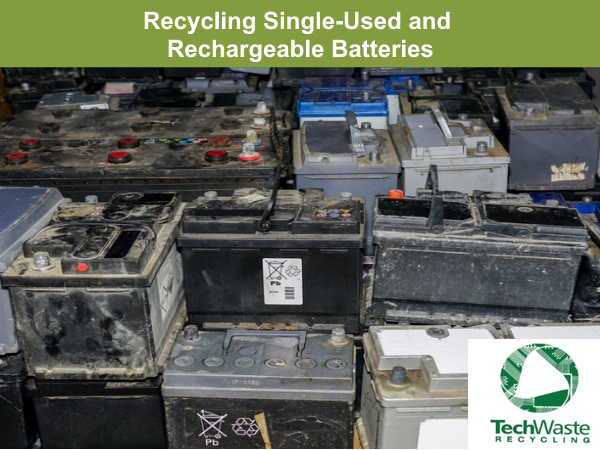Single-use and rechargeable batteries cannot be placed in your recycling bin for collection. They must be transported to a specialized recycling facility to be disassembled and processed.
Proper Battery Disposal
Prepare Your Batteries for Reuse
After locating a location that will take your batteries for recycling, you should prepare them for recycling.
For disposable batteries
- Put your batteries in a bag or secure them with tape. Tape each end of the battery with transparent, non-conductive tape to prevent residual discharge and avoid fire danger. You can store each battery in its own plastic bag if you lack tape,
- Keep your batteries in a container that is not conductive. Put the batteries in a plastic box or cardboard. These could spark and start a fire if placed inside a metal box.
For rechargeable batteries
- Remove the old batteries from your electronics. Remove the rechargeable batteries from your outdated electronics. Your electronics must be recycled independently.
- Bag or tape your batteries. Similar to single-use batteries, you should bag or tape your batteries for recycling.
Now that your batteries are transportable, you can bring them to the nearest recycling facility. Once bagged or taped, they should be dropped off within 6 months.
How to Recycle Used Automobile Batteries
You should not only recycle the batteries in your electronic devices but also your old car batteries. Recycling automobile batteries is easier than recycling other types of batteries and may save you money.
Before recycling your automobile battery, cover it in thick plastic to prevent the toxins from leaking out.
The Importance of Recycling Used Batteries
There is still a significant amount of value in a used battery. Batteries are separated by chemicals after being gathered at a specialized recycling facility. The batteries are subsequently recycled into basic materials for use in other products. Metals such as aluminum, lead, zinc, and nickel can be extracted from used batteries, among other elements. When lithium-ion batteries are recycled, for instance, lithium can be converted into lithium carbonate, a foil-making ingredient. This helps to protect undeveloped resources.
Recycling used batteries benefits the environment, too. Certain batteries contain harmful compounds that, when improperly discarded, might leach into the groundwater or destroy ecosystems. Safety is another reason for always recycling batteries. Batteries that are improperly discarded might overheat and cause a fire.
Proper Disposal of Spent Batteries
Batteries fuel our daily lives, from our automobiles to our laptops. Once they have died, they should be recycled rather than discarded. Recycling batteries aids in the production of new products, the prevention of hazardous fires, and the prevention of the release of poisonous chemicals into the environment. Find special battery recycling facilities in your area so that your batteries can enjoy a second life.
Call us to schedule a pickup in the areas we serve and learn more About TechWaste Recycling and our R2v3 certified e-waste disposal process and management.


































